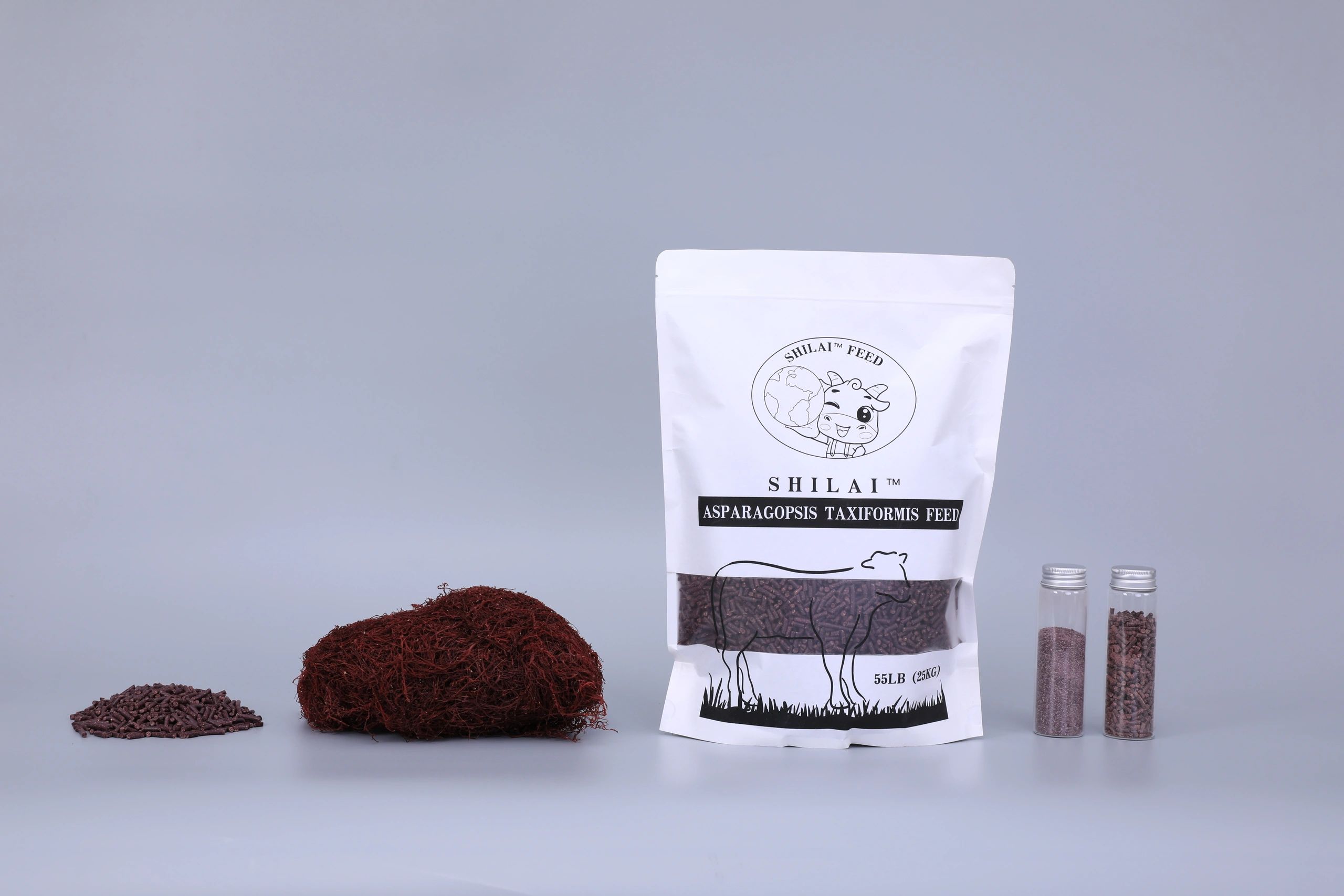The agriculture sector worldwide produces a notable share of greenhouse gases, mainly attributable to livestock production.
With a higher global warming potential than CO2, methane represents a particularly damaging contributor to climate change.
Asparagopsis taxiformis, an oceanic red alga, shows potential as an effective strategy to reduce methane emissions from animals.
A unique chemical in the seaweed interferes with rumen methanogens, resulting in measurable decreases in methane production.
Incorporating Asparagopsis taxiformis into animal diets has shown positive findings in pilot studies that indicate a feasible way to lower emissions from livestock.
- Additionally, Asparagopsis taxiformis provides further value propositions alongside emissions reductions.
- Stronger digestive performance in animals
- Opportunities to develop sustainable aquaculture-driven industries
Additional scientific and practical work is necessary, but Asparagopsis taxiformis stands out as a promising pathway to greener livestock production.
Unlocking the Potential of Asparagopsis taxiformis Powder as a Feed Additive
Using Asparagopsis taxiformis in powdered concentrate form could markedly improve feed solutions for livestock.
The seaweed’s composition includes valuable nutrients and active molecules that can improve productivity metrics.
Blending A. taxiformis powder into rations has produced measurable methane cuts in research and supplies supportive nutrients.
Deeper investigation is necessary to establish best practices for dosing, feed processing, and long-term animal health outcomes.
Asparagopsis taxiformis and the Next Era of Sustainable Animal Production
This red seaweed is gaining attention as an approach to address environmental problems tied to conventional animal agriculture.
When included in animal diets, the seaweed’s methane reductions could materially shrink farm greenhouse gas footprints.
Experiments have shown possible improvements in animal condition and performance when Asparagopsis is included in diets.
Extensive trials and commercial validation are needed, but initial evidence supports continued investment and testing.
Methane Reduction Through Asparagopsis Feed Additive
Asparagopsis is recognized as a strong candidate for reducing the methane burden from ruminant livestock.
Asparagopsis contains active molecules that alter rumen microbial activity and limit methane generation.
- Research trials have demonstrated that Asparagopsis can reduce methane by substantial percentages in controlled studies.
- Deploying Asparagopsis as a dietary additive represents an environmentally conscious mitigation tactic.
- Ranchers and livestock operators are showing heightened interest in testing Asparagopsis in diets.
Asparagopsis: The Seaweed Transforming Livestock Production
Ocean-sourced Asparagopsis taxiformis is gaining recognition for its capacity to reduce methane in ruminant digestion.
- Experimental feeding of Asparagopsis yielded large methane reductions, suggesting important environmental gains.
- This seaweed breakthrough may foster a new balance between productive farming and reduced ecological impact.
In the search for scalable climate solutions, Asparagopsis is highlighted as a promising and practicable methane mitigation tool.
Streamlining Asparagopsis taxiformis Feed Applications to Maximize Methane Benefits
Work is underway to determine optimal processing methods and inclusion rates to enhance A. taxiformis effectiveness.
The Science Behind Asparagopsis taxiformis's Methane-Lowering Effects

The underlying science ties the seaweed’s compounds to suppression of methanogenic microbes in the rumen, cutting methane formation.
The seaweed’s methane reduction is associated with bromoform compounds, which are under active investigation for mechanisms and risk assessment.
Adding Asparagopsis into Rations to Support Sustainable Livestock Systems
The alga’s nutrient composition plus its methane-mitigating constituents support its potential as a feed ingredient.
Feed inclusion can provide animals with extra amino acids and micronutrients, enhance gut function, and offer antimicrobial benefits.
Leveraging Asparagopsis taxiformis for Environmental Gains in Food Production
The seaweed is positioned as an innovative, nature-based measure to tackle emissions and improve the sustainability of food supply chains.
- Furthermore, Asparagopsis taxiformis is nutrient rich and can add valuable components to animal feeds.
- Scientists and industry experts are actively exploring its uses across aquaculture, agriculture, and food production sectors.
Integrating Asparagopsis taxiformis into existing practices could produce meaningful reductions in the environmental impacts of agricultural activities.
Animal Health and Productivity Gains from Asparagopsis Feed Inclusion
Asparagopsis shows promise as a multifunctional feed additive that supports emissions reduction and animal performance.
Evidence points to improved digestive nutrient capture and feed efficiency with Asparagopsis, which may raise productivity.
Observed functional properties include antioxidant and immune-supportive actions that could protect animal health.
Growing market and regulatory interest in emissions reduction underscores the potential role for Asparagopsis as development continues.
Asparagopsis and Methane Reduction: A Path to Carbon Neutrality
As the agricultural sector seeks pathways to emissions reduction, Asparagopsis stands out as an implementable methane mitigation measure.
- Researchers suspect the algae’s molecules interfere with the biochemical steps of methanogenesis, reducing methane generation.
- Studies and trials consistently report significant methane reductions from Asparagopsis inclusion under controlled conditions.
This innovative approach not only offers a greener feed option but also the potential to transform food production toward climate-resilient outcomes.